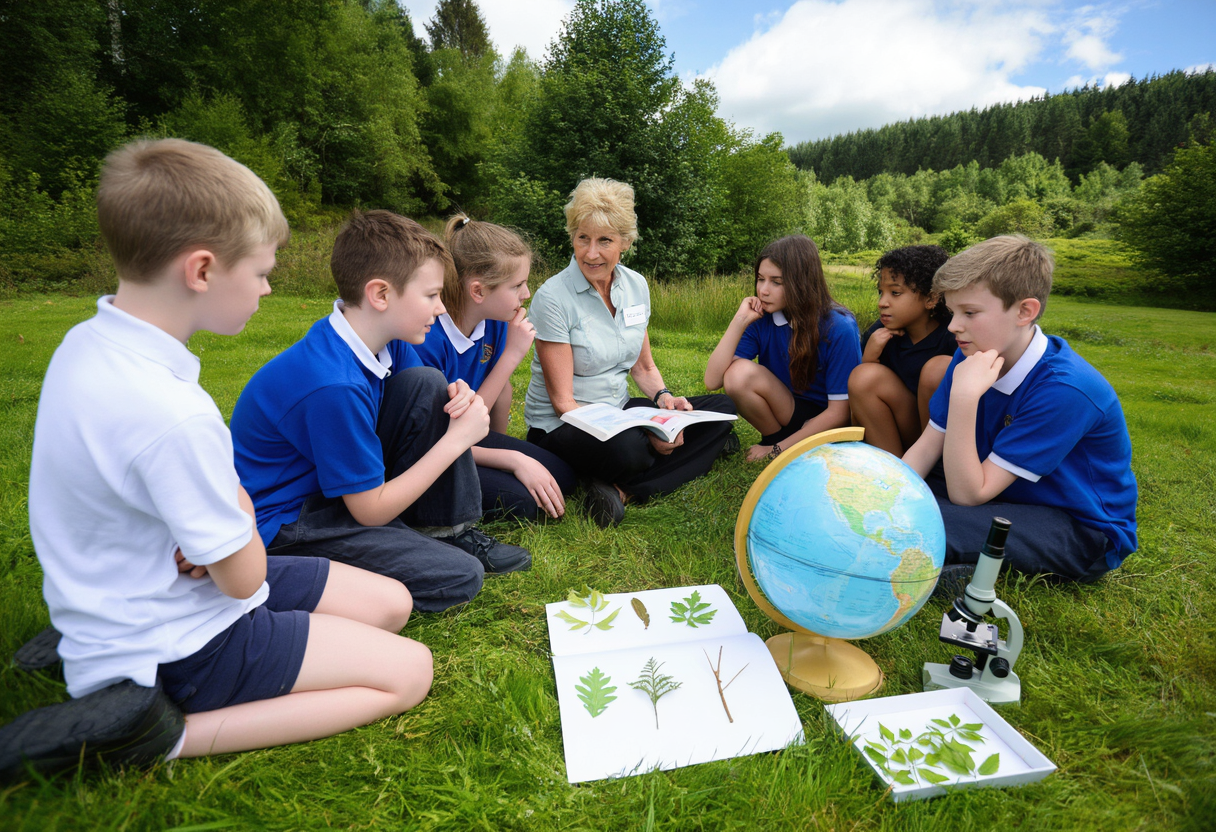Transforming Lives through Environmental Education: A Path to Sustainable Development
Environmental Education is a multifaceted field that fosters awareness and understanding of ecological issues. Through innovative teaching methods, it prepares individuals to confront environmental challenges and promotes sustainable practices. This article explores the transformative power of environmental education in shaping responsible global citizens to achieve a sustainable future.
Understanding the Importance of Environmental Education
Environmental Education plays a crucial role in shaping the attitudes and behaviors of individuals towards their environment. By promoting awareness about environmental issues, it encourages individuals to take responsibility for their actions. Ultimately, this form of education seeks to cultivate a community that values sustainability and actively engages in practices that protect our planet. In an era where climate change poses a significant threat, the relevance of Environmental Education cannot be overstated. Schools, communities, and organizations are now prioritizing this education to ensure future generations inherit a healthier planet. Understanding the principles of Environmental Education leads to informed decision-making and responsible citizenship.
Innovative Methods in Environmental Education
To enhance the impact of Environmental Education, innovative teaching methods are being employed. Experiential learning, such as outdoor activities and hands-on projects, engages learners more effectively. Through these real-world experiences, participants can see the effects of their actions on the environment. Moreover, technology is being integrated into Environmental Education through interactive tools and online platforms. This not only makes learning appealing but also facilitates widespread access to ecological knowledge. Thus, the combination of different methodologies strengthens the overall framework of Environmental Education, ensuring a deeper understanding of environmental issues.
The Role of Communities in Promoting Environmental Education
Communities play a vital role in disseminating Environmental Education. Grassroots initiatives, local workshops, and community gardens are just a few examples of how individuals come together to promote environmental awareness. These activities encourage collaboration, allowing multiple generations to share knowledge and experiences. Furthermore, engaging the community in environmental conservation efforts can lead to a stronger commitment to sustainability. By fostering a culture of collective responsibility, Environmental Education can lead to transformative changes within the community, making it a hub of sustainable practices.
The Global Perspective on Environmental Education
Globally, Environmental Education is being recognized as an essential tool for sustainable development. Various international bodies, including UNESCO, advocate for the integration of environmental principles in educational systems. By fostering global citizenry, individuals are equipped with the skills needed to address pressing environmental challenges. Moreover, sharing best practices from different cultures enhances the approach towards Environmental Education, allowing for localized adaptations that cater to specific communities. As interconnectedness increases, the sharing of knowledge becomes vital for fostering a unified global response to environmental issues.
Challenges to Implementing Effective Environmental Education
Despite its benefits, implementing Environmental Education comes with challenges. Resource limitations, lack of trained educators, and varying levels of community interest can hinder progress. Additionally, misconceptions about environmental issues may prevent individuals from engaging with this vital education. Addressing these obstacles requires a multi-faceted approach. Advocacy for policy changes, alongside community support, is crucial for creating a robust infrastructure for Environmental Education. By overcoming these hurdles, society can ensure that everyone has the opportunity to participate in promoting a sustainable future.
Future Directions for Environmental Education
Looking ahead, Environmental Education must continue to evolve in response to changing global needs. The future may see increased emphasis on interdisciplinary approaches that combine science, art, and social studies. Furthermore, incorporation of climate resilience strategies into curricula will empower students to adapt to an uncertain future. As technological advancements accelerate, harnessing digital platforms for Environmental Education could make learning more dynamic and accessible. Ultimately, fostering a culture that prioritizes environmental stewardship starts with effective education, ensuring a sustainable world for future generations.
